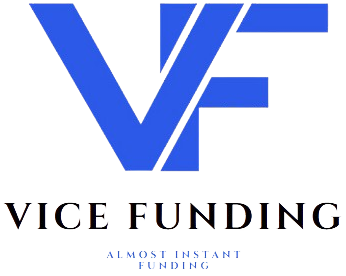
Complete Guide to Business Insurance | Business Loans
Business Insurance
Quick Overview
- Do I Need Insurance for My New Small Business?
- Types of Business Insurance.
- Main Insurance Types You Should Consider.
By Joe Marone | Last Updated: May 10, 2024
Complete Guide to Business Insurance | Business Loans
Business Insurance
Quick Overview
- Do I Need Insurance for My New Small Business?
- Types of Business Insurance.
- Main Insurance Types You Should Consider.
By Joe Marone | Last Updated: May 10, 2024
Do I Need Insurance for My New Small Business?
As a small business owner, securing the appropriate insurance is a critical step in protecting your business from various risks. Insurance not only safeguards your business from unexpected financial setbacks but is also a legal requirement in most states and often a necessity for fulfilling client contracts.
Insurance helps protect your business from potential losses that can arise from:
Property damage (to your business or building)
Vehicle accidents (if you use commercial vehicles)
Employee injuries (through workers’ compensation)
Theft or vandalism
Data breaches
Liability claims
Natural disasters
Without adequate coverage, your business could face severe financial consequences, putting you and your assets at risk. Whether you’re operating as a sole proprietorship or an LLC, small business insurance is essential. It’s not just advisable—it’s necessary to ensure your business can withstand these unpredictable events and continue to thrive.
Which Types of Insurance Do I Need for My New Business?
The specific types of business insurance you need will depend on several factors, including your industry, the number of employees, the nature of your business, and the risks you face. Here are some things to consider:
Industry Type: For example, a landscaping business may require insurance to cover environmental damage caused by chemicals like pesticides, while a tech startup might need coverage for intellectual property.
Employee Count: If you have several employees, you’ll likely need more comprehensive Workers’ Compensation insurance to cover work-related injuries and illnesses.
Intellectual Property Needs: Businesses in technology or creative industries may require Intellectual Property insurance to protect their original ideas, inventions, or patents.
Property and Equipment: If your business relies heavily on physical assets, insuring your property and equipment (such as machinery, vehicles, or inventory) is essential.
Understanding these factors will help you identify the most suitable coverage for your needs.
Key Types of Insurance to Consider
While every business is unique, certain types of insurance are almost always needed. These include:
1. General Liability Insurance
This is one of the most common and important forms of coverage. It protects your business against lawsuits for injuries, property damage, and advertising-related claims. For example, if a customer trips on your premises or if your business is accused of slander, General Liability will cover legal costs and settlements.
2. Workers’ Compensation Insurance
Required in most states, Workers’ Compensation covers medical expenses, lost wages, and other costs related to workplace injuries. It also protects your business from lawsuits stemming from employee injuries, ensuring that employees are compensated for on-the-job accidents.
3. Professional Liability Insurance
Also known as Errors and Omissions (E&O) insurance, this is essential for businesses that provide professional services, such as lawyers, architects, and consultants. It covers mistakes, omissions, or negligence that could harm your clients or customers, including legal defense costs.
4. Business Owner’s Policy (BOP)
A BOP bundles essential coverage like General Liability and Property Insurance into one package. It can also be customized to cover additional risks such as business interruption, which helps you recover if your business is temporarily unable to operate.
5. Cyber Liability Insurance
In today’s digital world, Cyber Liability is increasingly important. This type of insurance protects your business against data breaches, cyber-attacks, and other online threats, covering costs like data recovery, legal fees, and loss of income due to business interruption.
6. Commercial Auto Insurance
If your business uses vehicles—whether for deliveries, service calls, or transporting goods—Commercial Auto Insurance is necessary. This policy ensures you’re covered in case of accidents involving company vehicles, protecting both the vehicle and the employees driving it.
Benefits of Small Business Insurance
Investing in the right business insurance offers several key benefits:
Protection from Financial Losses: Insurance can help cover expenses related to accidents, damage, theft, or lawsuits that could otherwise financially cripple your business.
Reputation Management: Having insurance in place shows clients and partners that you’re prepared and professional. It also ensures that any issues that arise are handled responsibly.
Business Continuity: Insurance helps keep your business operational in the event of a setback, whether due to property damage or a lawsuit, by covering repair costs or lost income.
Risk Mitigation: Insurance provides peace of mind, sharing the financial burden of unexpected risks. It allows you to focus on growing your business without fearing the worst-case scenario.
How Much Does Small Business Insurance Cost?
The cost of business insurance depends on several factors:
Industry and Risk Exposure: Higher-risk industries like construction or healthcare will typically pay more than low-risk businesses.
Location: If your business is located in an area prone to natural disasters or theft, your premiums may be higher.
Business Size: Larger businesses with more employees and assets usually pay more for coverage.
Claims History: If your business has a history of insurance claims, your premiums may increase.
How Do You Get Business Insurance?
To get small business insurance, start by assessing your business needs and identifying the types of coverage you require. Gather essential documents like your business identification number, any past insurance claims, the number of employees, and details about your business property. From there, you can work with an insurance agent or broker to find the best options.
Where to Find Small Business Insurance
There are numerous options for obtaining small business insurance. In addition to large, national insurance companies, you can find coverage through smaller, specialized providers. Working with an insurance broker is a traditional and trusted way to learn about your options. You can also compare multiple quotes and providers using websites like ViceFunding.com, helping you make an informed decision based on your business’s unique needs.
Most Popular Guides
Set your business up for financial success.

Ready to get started?
View your options today
Answer some questions in less than 3 minutes, no impact to your credit score, multiple offers YOU are in the driver’s seat!
